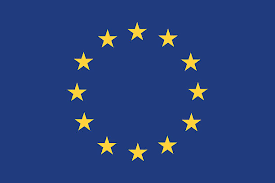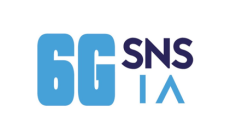Call for Papers 6G-PDN workshop at MobiHoc2023
The SNS Phase 1 project DESIRE6G calls for papers. 6G-PDN (6G Programmable Deterministic Networking with AI) Workshop co-locate with MobiHoc – Washington, Washington DC, USA, October 23-26, 2023
The aim of this workshop is to discuss the roadmap and challenges in the technological areas of deterministic communications and deep network programmability in 6G to support future end-to- end time-critical applications.
Call for papers
Creating a deterministic network, understood as end-to-end time sensitive, reliable, and predictable communications, remains a challenge for cellular networks, especially in an industrial context. Wired deterministic communication standards have already emerged including Time Sensitive Networking (TSN) and Deterministic Networking (DetNet) and 5G has specified mechanisms for interworking with those standards. However, the available support of 5G in conjunction with TSN and DetNet is not sufficient for future end-to-end time-critical applications.
Network programmability is key in supporting emerging 6G networks in achieving their promises of increased performance and flexibility at a lower cost. Deep network programmability is expected to characterize the new generation of mobile networks (6G), currently under development, towards supporting extreme performance requirements and service-specific operations.
Enriching next-generation mobile networks with data plane programming capabilities can bring significant benefits with regards to network slicing and multi-tenancy, dynamic traffic engineering, offloading network functions to the data plane, etc. Coupled with edge solutions and advanced machine learning algorithms for network automation can help to overcome network performance limits, e.g., in terms of latency and deterministic delivery.
This workshop aims to bring together academic and industry researchers to stimulate discussions, introduce news ideas and technical solutions in the aforementioned areas and therefore contribute to the progress of 6G networking research.
Submitted papers may cover any of the following topics:
- Programmable data planes for TSN
- Network softwarization for 6G
- Programmable Networking Protocols
- Programmable SDN and NFV: languages and architectures (P4 and others)
- Hardware acceleration for programmable network functions
- Multitenant data planes
- Orchestration and Management of Software-Defined Deterministic Networks
- Control and Management of Data plane programmable devices
- Artificial intelligence for deterministic networks
- In network Machine Learning
- In-network service level tuning and optimization; QoS
- High precision traffic monitoring/telemetry
- Service assurance and fulfillment programmability
- Slicing for 6G
- Intent-based systems and Digital twinning applied in 6G.
- Reliability, time sensitiveness and predictability in 3GPP and WiFi systems
Submission Information
Papers should be submitted via the HotCRP submission website (https://pdn-6g23.hotcrp.com/). We accept two types of submissions to the workshop:
- Full Papers: Full papers should not exceed 6 pages (US letter size) double column including figures, tables, and references in standard ACM format.
- Extended abstracts:Extended abstracts should not exceed 3 pages (US letter size) double column including figures, tables, and references in standard ACM format. Accepted extended abstracts will be charged at the same rate as paper contributions.
Papers must be submitted electronically in printable PDF form. Templates for the standard ACM format can be found at this link. If you are using LaTeX, please refer to the sample file “sample-sigconf.tex” after you download the .zip templates file and unzip it. Note that the document class “\documentclass[sigconf]{acmart}” should be used. No changes to margins, spacing, or font sizes are allowed from those specified by the style files. Papers violating the formatting guidelines will be returned without review.
All submissions will be reviewed using a single-blind review process. The identity of referees will not be revealed to authors, but author can keep their names on the submitted papers, on figures, bibliography, etc.
Organizers (any enquiry can be submitted to 6g-pdn-chairs@googlegroups.com)
- Antonio de la Oliva, University Carlos III Madrid (UC3M)
- Chrysa Papagianni, University of Amsterdam (UvA)
- Christian Esteve Rothenberg, University of Campinas (UNICAMP)
- Dave Cavalcanti, Intel Corporation
All information available at https://desire6g.eu/6g-pdn/ & https://predict-6g.eu/dissemination-exploitation/6g-pdn/


